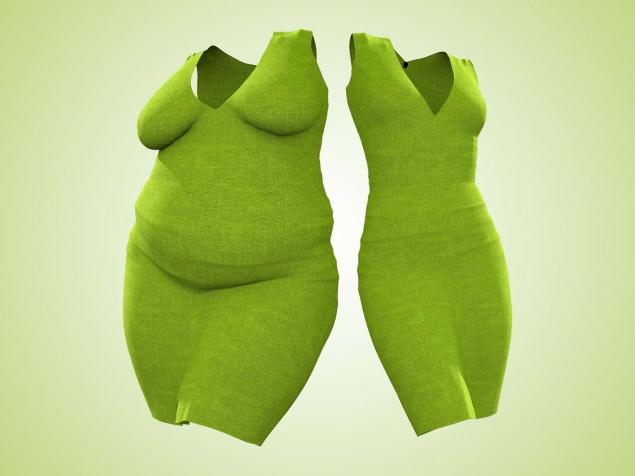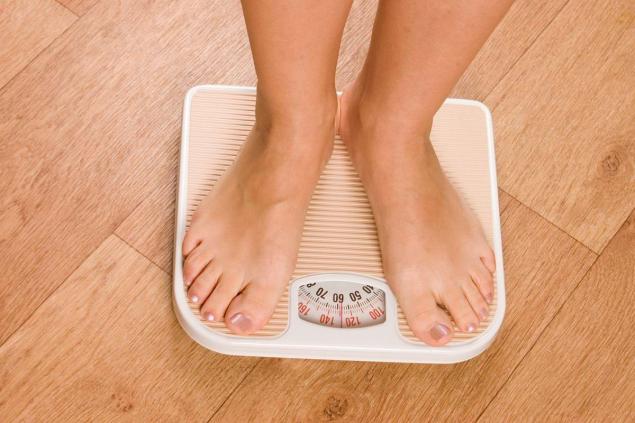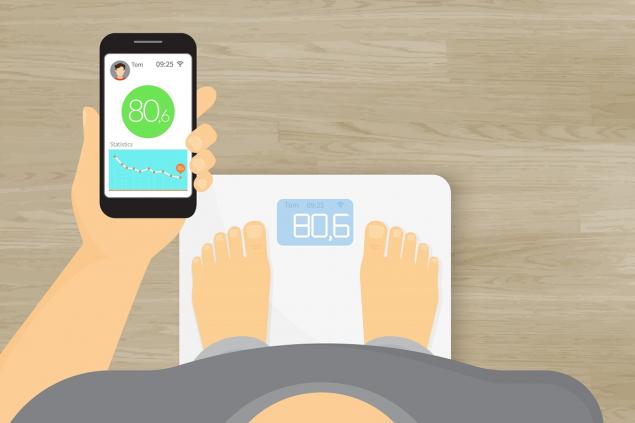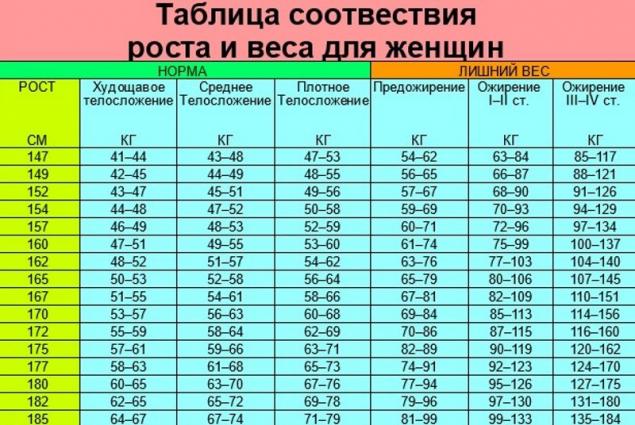165
Nutritionist enlightened, it turns out I've been weighing myself wrong all my life
How to weigh yourself to find out the exact weight? Morning or evening, before meals or after? We talk about simple rules that will help to avoid annoying inaccuracies when measuring body weight using floor scales.

Some people say that 500 grams of weather won’t work. But even small fluctuations in weight can distort your progress if you lose weight or exercise seriously. And for those women who are just trying to maintain their optimal weight, we added a table of the French anthropologist Paul Brock. It calculated the ideal ratio of height and weight, taking into account the type of physique.
How do you weigh yourself? To avoid inaccuracies, a number of factors must be taken into account. For example, at low temperatures, some weight models become less sensitive. Errors can also lead to their installation on a soft flooring. Choose a solid and flat surface for weighing. Try to stand in the middle of the scales and do not make sudden movements.
Down with the accessories!
All clothes add weight. The shirt and shorts don’t seem to weigh much. But even 200-300 extra grams can distort the picture. Therefore, to avoid inaccuracies, it is better to weigh yourself without clothes. The same goes for accessories. Take off your watch, put your phone away, and then get on the scale.
When to weigh yourself? It is recommended to weigh on an empty stomach, visiting the toilet before that. After all, crowded bladder and intestines can lead to an error of up to 500 grams. It is better to take measurements in the morning. So you can plan your diet and exercise for the rest of the day.

But less tea and no salt before bed! Due to salt in the body, excess water is retained, swelling appears, and weight can fluctuate within a kilogram. It is also noted that the prerequisites for fluid retention in the body create stress and nervous overstrain.
Household appliances are becoming smarter, and scales are no exception. The latest models not only measure weight, but are also able to control muscle mass, percentage of adipose tissue, water content and many other important parameters of the body.

Since it uses sensors that pass a weak current through the body, it is better to weigh when there is enough fluid in the body, and the legs are slightly moist. It usually happens in the middle of the day.
Smart scales allow you to monitor the progress in weight gain and send all the information to the phone. Sometimes this leads to funny things. So, one woman went to the sea and suddenly received news of another weighing. Seeing an incomprehensible figure, she suspected something was wrong and directly asked her husband about it. The cheater was shocked, but admitted that another person had visited the house.
To minimize random errors, weigh yourself three times daily: in the morning, at lunch and in the evening. After writing down the values and calculating the arithmetic mean, you will measure your weight as accurately as possible.
According to the calculations of the French anthropologist Paul Brock, it is easy to calculate the ideal female weight using the above table. However, over the years, the body consumes less energy, and therefore metabolic processes slow down, fat becomes more. This leads to a set of extra pounds.

Therefore, for women over 40 years old, 10% should be added to the ideal weight indicators of the table, for women over 55 years old - 15%. It should be borne in mind that these calculations indicate the upper permissible limit of weight, by which you can determine whether a person is obese or not. Excessive thinness cannot be defined this way.

Everyone has the right to treat their own body as they see fit. And the above table indicates only approximate values without taking into account many individual characteristics. Someone, having studied it, will think that he is overweight. Someone who's just undergrowth. We believe that the right weight in any case is the one with which a person lives easily and comfortably.

Some people say that 500 grams of weather won’t work. But even small fluctuations in weight can distort your progress if you lose weight or exercise seriously. And for those women who are just trying to maintain their optimal weight, we added a table of the French anthropologist Paul Brock. It calculated the ideal ratio of height and weight, taking into account the type of physique.
How do you weigh yourself? To avoid inaccuracies, a number of factors must be taken into account. For example, at low temperatures, some weight models become less sensitive. Errors can also lead to their installation on a soft flooring. Choose a solid and flat surface for weighing. Try to stand in the middle of the scales and do not make sudden movements.
Down with the accessories!

All clothes add weight. The shirt and shorts don’t seem to weigh much. But even 200-300 extra grams can distort the picture. Therefore, to avoid inaccuracies, it is better to weigh yourself without clothes. The same goes for accessories. Take off your watch, put your phone away, and then get on the scale.
When to weigh yourself? It is recommended to weigh on an empty stomach, visiting the toilet before that. After all, crowded bladder and intestines can lead to an error of up to 500 grams. It is better to take measurements in the morning. So you can plan your diet and exercise for the rest of the day.

But less tea and no salt before bed! Due to salt in the body, excess water is retained, swelling appears, and weight can fluctuate within a kilogram. It is also noted that the prerequisites for fluid retention in the body create stress and nervous overstrain.
Household appliances are becoming smarter, and scales are no exception. The latest models not only measure weight, but are also able to control muscle mass, percentage of adipose tissue, water content and many other important parameters of the body.

Since it uses sensors that pass a weak current through the body, it is better to weigh when there is enough fluid in the body, and the legs are slightly moist. It usually happens in the middle of the day.
Smart scales allow you to monitor the progress in weight gain and send all the information to the phone. Sometimes this leads to funny things. So, one woman went to the sea and suddenly received news of another weighing. Seeing an incomprehensible figure, she suspected something was wrong and directly asked her husband about it. The cheater was shocked, but admitted that another person had visited the house.
To minimize random errors, weigh yourself three times daily: in the morning, at lunch and in the evening. After writing down the values and calculating the arithmetic mean, you will measure your weight as accurately as possible.
According to the calculations of the French anthropologist Paul Brock, it is easy to calculate the ideal female weight using the above table. However, over the years, the body consumes less energy, and therefore metabolic processes slow down, fat becomes more. This leads to a set of extra pounds.

Therefore, for women over 40 years old, 10% should be added to the ideal weight indicators of the table, for women over 55 years old - 15%. It should be borne in mind that these calculations indicate the upper permissible limit of weight, by which you can determine whether a person is obese or not. Excessive thinness cannot be defined this way.

Everyone has the right to treat their own body as they see fit. And the above table indicates only approximate values without taking into account many individual characteristics. Someone, having studied it, will think that he is overweight. Someone who's just undergrowth. We believe that the right weight in any case is the one with which a person lives easily and comfortably.
Why Soviet things have not failed for decades, and modern junk quickly goes to waste
Olga could not pass by a trembling homeless man and invited him to warm up, she had no idea what it would turn out to be.























